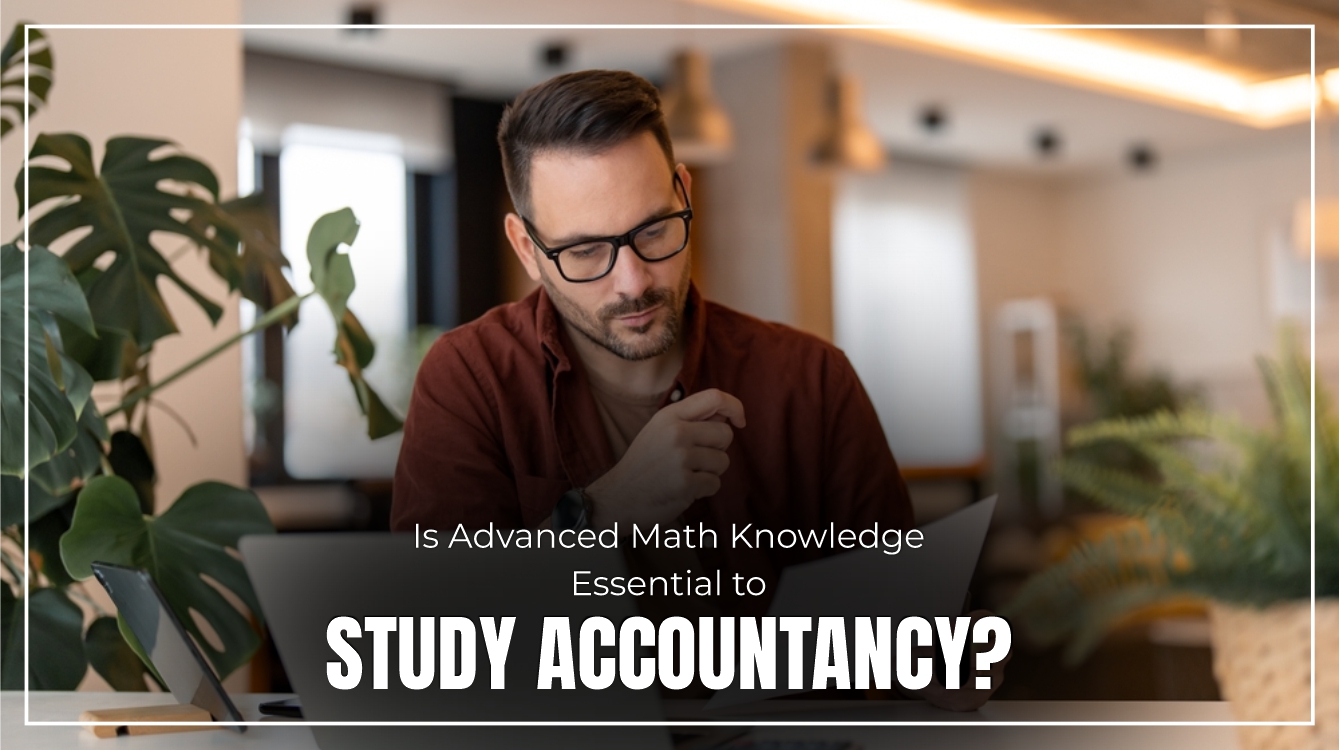Is Advanced Math Knowledge Essential to Study Accountancy?




An Accountancy qualification is a great way forward into a safe career opportunity in future. It offers you a stable career to advance in better positions with every promotion. Regardless of state or global economy, accountants with excellent accountancy training are always in demand. However, some associated myths with accountancy careers impact the learners' interest in the field. One such myth is the necessity of mathematics for studying AAT qualification.
Students believe that they need to be exceptional at math to study accountancy. Mathematics and accounting are quite different degrees, and you do not need to be a maths whiz to be an accountant. While considering an accounting career, you might wonder what types of mathematical skills you require for degree completion. So, the present article will answer all your questions.
It might seem that you will be using algebraic equations and mathematical formulas to perform the core accounting task. Though accountants handle numbers in their professional duties, the maths involved in the process is just basic.
You must only be comfortable with numbers to easily analyze and interpret the data in the form of figures. They are not required to do complex mathematical operations, but they are performed by technology and computers. Therefore, being tech-savvy is more important for your accountancy career than being a math whiz.
Accountants' jobs involve gathering and organizing financial data and making analyses and interpretations to make it meaningful. In the taxation field, data analysis does not mean applying mathematical equations but determining what companies owe in taxes, offering methods to clients to decrease their tax burden or pointing out areas where changes are required following tax law.
In forensic accounting and auditing, data analysis means record review to detect loopholes and determine their sources in the organization. Often these loopholes are intentionally created, and forensic accountants identify the people involved in fraud. No complex math skills are required to analyze the data; however, basic maths knowledge is crucial for accountants.
The core skills for accounting include research, logic, computer literacy, and problem-solving rather than advanced maths skills. However, you must possess some math knowledge and undertake math courses during your college studies.
Taking an algebra course or precalculus is recommended through business calculus or applied calculus class for an accounting career.
Additionally, coursework in statistics is also important for learning the data analysis technique for financial data.
The part of maths in the accounting curriculum depends upon the type of degree you are applying for.
The Bachelor of Accountancy (BAC) curriculum at the undergraduate level relies more on developing foundational accounting concepts and basic skills for practice than on math skills.
The degree curriculum includes more information on analytic skills and technical accounting and includes advanced math coursework.
These degrees' curriculum focuses more on management and business concepts, focusing on accounting practice and principles. These courses do not require extensive knowledge in mathematics and emphasize more on general business concepts than specialized accountancy training.
For enrolment in an entry-level AAT Foundation certificate, you need basic level math skills or GCSE grade, not advanced maths qualification or degree.
No chartered accountancy course, including CA, ACCA, ACA, or CIMA, requires mathematics as an introductory course, and eligibility criteria do not mention maths qualification. However, it is involved in the Final level and proficiency test.
To become a certified public accountant, you only need enough math knowledge to pass the exams. You must remember that this math knowledge is not limited to basic skills and requires more complex information than daily math works.
The myth that accountancy is all about mathematics is a mere fallacy, and number manipulation in accounting training does not require advanced level math skills. Accountants use formulas for creating financial statements; however, the procedure needs the right numbers to plug in and no whizzy math trick..
The spreadsheet software or simple calculator can do the math in financial statements and credits, and simple addition and subtraction can do the honours and debts calculations. All accountants need to do is to have a concept of percentage, decimals, and fractions.
Math still seems important but is not necessary for being an accountant. Other skills such as computer and tech literacy and soft skills are more significant for an accountancy qualification.
It is a misconception that numbers in accountancy mean maths. You only need basic mathematics skills like arithmetic and algebra to complete initial accounting courses as information only contains numerical data.
With basic knowledge of maths, you also need effective communication skills, organizational skills, analytical skills, and problem-solving skills. Additionally, you also need to be a leader and manager to engage staff in work and apply interpersonal skills to deal with their problems and conflicts.
Moreover, being computer literate is rather more important than math knowledge. Most accounting rely on software such as XERO, Sage, and QuickBooks and proficiency in spreadsheets will earn you a better job. Instead of worrying about your math knowledge, work on your technological awareness to get the most out of accountancy training.
Accountancy is not so easy as you have to grasp the knowledge of Business law, taxation, IT, mathematics, and management accounting to be a professional accountant.